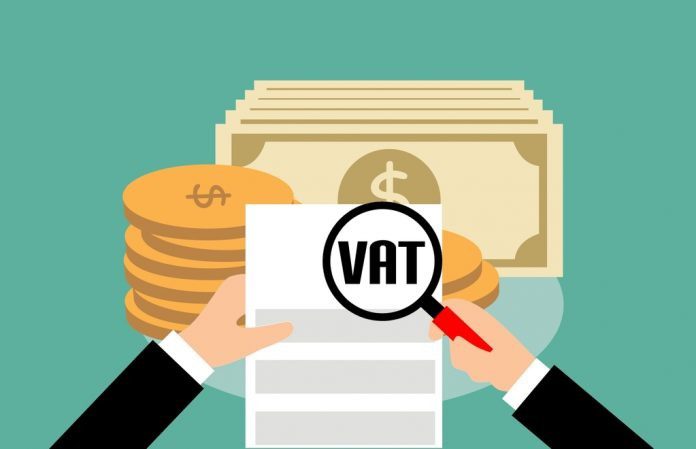For small businesses, this area of tax is definitely not straightforward. It can, in fact, be a huge minefield for naive individuals. However, if you take some time, and work closely with your accountant, usually it is possible to find ways to save on your taxes.
To help you consider ways your business and you can pay less tax, we called on Simon Cox from Forbes Watson Accountants to share with you 10 top things that small business owners can consider for paying less tax.
These tips are designed to cause you to stop and think. Currently, are you doing everything that you can to save tax? Is your tax advisor help you achieve this?
- Know your industry:
Stay involved with your trade association or body, read the newsletters, and attend their events. A majority of industries have special allowances and dispensations that the HMRC has approved, like uniform allowances. Your union or trade body is one your side, so make sure you use them to the fullest extent.
- Spend more time working on your business:
Are you actually the best person to do the VAT returns or bookkeeping?
Your business will definitely benefit if you spend time work on it, and allow the accountants and bookkeepers to do the work they are experts in. The amount you might think you are saving on fees you most likely are losing by not claiming all of the things that you are entitled to take.
- Know about VAT:
VAT is one of the most areas where many business owners are missing out. Are you paying the proper amount? Have you looked into the Flat Rate Scheme?
There are numerous businesses that are not aware of the Flat Rate VAT scheme. However, it may be a source of profits for certain businesses that they don’t know about.
The bottom line is, you pay a single, flat VAT rate on your turnover under the flat rate scheme. HMR has a list of the flat VAT rates that are available for various industries. For instance, for property managers and Estate agent, it is 12%, and for IT and computer consultants it is 14.5%.
You select that most applicable VAT rate for your industry, apply this percentage to your gross turnover for the quarter and pay the amount to the HMRC.
Usually, you cannot reclaim the VAT on the items that you purchase but you are able to keep the difference between the amount of VAT that you are charging your customers (normally 20%). The HMRC will even give you a 1% discount within the initial 12 months of registration.
We here at Forbes Watson have helped many clients benefit ranging from £2,000 to £8,000 per year, simply by utilising the Flat Rate Scheme, so it is definitely worth exploring and considering.
- Speak to your accountant:
Quite often business owners complain to their accountant about having to pay too much tax.
Truthfully it is the business owners who consider their accountants to be trusted advisors and somebody who can help them save on their taxes are frequently the ones who pay the least amount of tax possible. If you cannot talk to your accountant, then find a new one.
- Work from home:
Generous tax savings is allowed by the HMRC for self-employed businesses that work from home. Be sure you know about them.
A majority of businesses claim a modest charge for use of home of only £2 per week. However, more than that is actually allowed by the HMRC. For sole traders working from home a more scientific method is allowed by the HMRC to calculate which expenses can be deducted for use of your house.
If you are self-employed and own a business, you can claim part of the following home expenses:
General household maintenance and repairs
- Phone and landline costs
- Water
- Light and heat
- Insurance
- Mortgage Interest
- Council Tax
For businesses using a dedicated room in the home for work, there can be a very generous ‘Use of Home’ claim. There are numerous examples of things that can be claimed for use of home expenses on the HMRC website.
- Keep things in the family:
Currently, the standard Personal Allowance is £11,850 of tax-free income. Take a look at your family situation. It might be possible for you to use the personal allowances of members of your family who carry out duties for your business.
- Treat your staff:
Several tax-free benefits can be paid to your staff that can save both them and you on the taxes.
I am always surprised by how businesses actually fully take advantage of those benefit, either for their staff or themselves. The cycle to work scheme has been in place for several years. You can save as much as 25% on the cost of a new bicycle, and offers tax savings as well.
Large organisations like the NHS are enthusiastic promoters of the scheme, but it hasn’t been as good for smaller businesses.
Another great method for saving tax is tax-free childcare vouchers and can be a good tax-free benefit for your staff as well.
HMRC has reduced how much tax you can save through the use of childcare vouchers via a salary sacrifice scheme, but it is still valuable. You can learn more by reviewing the dedicated guide by ByteStart.
- Pay yourself efficiently:
How much you pay yourself out of your business will definitely impact the amount of tax that you pay. The way you pay yourself also can have a significant impact.
All types of benefits, dividends, and salary, all need to be continuously considered.
Use of a company car is a common benefit. Every case must be considered on an individual basis, but in general business owners may save tax by having and using a company car.
Care must be taken in order to ensure that the HMRC is promptly notified whenever employees are given a Company car. That will help you avoid a big tax bill at the end of your tax year.
You need to monitor dividend payments every month, and you can only achieve that by keeping your records current so they can provide you with the monthly management information that you need.
Dividends can be an excellent way to pay key individuals within your business, but you need to be careful that you don’t fall foul of the HMRC or Company Law.
- Be organised:
You may not want to do the actual bookkeeping on your own, but you can still help to ensure that you claim everything that you are entitled to by making sure you keep copies of everything.
One of the most common reasons why the HMRC disallows input VAT amounts of expense claims is the business failing to keep the right supporting records. So, don’t make that mistake. Keep on top of things and also on top of changes and VAT news at VATIT.
- Make sure you have a good team:
Even sole traders need to have a solid team that they can call on. Be sure to have a good financial advisor and an approachable and trusting accountant.
At times financial advice is confused with advice that should be given by an accountant, however, these two things are not always the same thing. You can also save on your taxes if you get the right advice on potential savings and investment thresholds.




![How Much is Lil Baby’s Net Worth in 2024 [Latest Info] Lil Baby Net Worth](https://www.wariat.org/wp-content/uploads/2024/03/Lil-Baby-Net-Worth-150x150.jpg)
![Rob Lowe Net Worth Speculation in 2024 [Comparative Analysis] Rob Lowe Net Worth](https://www.wariat.org/wp-content/uploads/2024/03/Rob-Lowe-Net-Worth-150x150.jpg)

